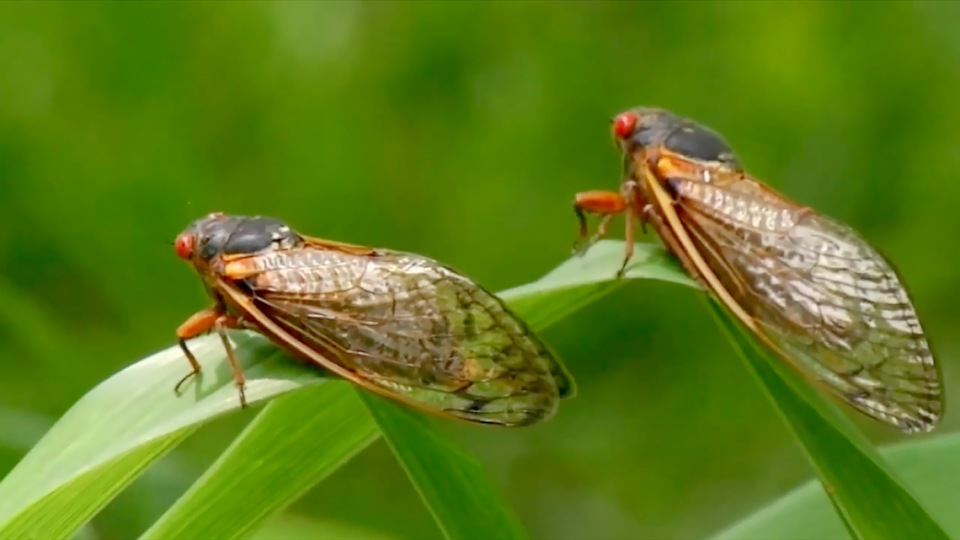911 caller reports alien spaceship in Durham. ‘Most likely cicadas,’ police say
“There is a noise that just won’t stop. And I’m very tired. And I want to know what the heck is going on,” said a Durham 911 caller who phoned the police earlier this month.
The caller, whose conversation with the police was obtained by The News & Observer, went on to say that the “loud and overwhelming” sound had kept her awake for 36 hours. She wanted some help figuring out the source of the noise — a sound she described as “an alien spaceship.”
Durham police officers responded to the complaint and determined that the probable culprit was “most likely cicadas,” according to a police report.
The May 3 caller is not the only person in Durham to ring the police after hearing the bugs. The N&O’s news-gathering partner ABC11 reported that the Durham County Sheriff’s Office has received multiple calls from residents who believed the sound was actually an alarm triggered to alert residents of possible crimes.
Earlier this week, the sheriff’s office posted a Facebook video to inform residents of the similarities between the “singing” cicadas and alarms or sirens.
“We’ve already started getting calls about alarms going off,” the video says. “When we responded we found it was just some friendly male cicadas singing out to the ladies. We don’t mind responding to your concerns.”
The cicadas make loud sounds to attract mates, and “when that happens we get calls from concerned residents about crimes occurring in the neighborhood,” the sheriff’s office wrote in a comment.
There are expected to be trillions of cicadas across the 16-state emergence this year, so it’s not unusual that Triangle residents are complaining about the noise.
Who else is hearing the cicadas?
Brood XIX cicadas were first spotted this April in Chapel Hill, with Raleigh and Charlotte residents seeing them weeks later, The News & Observer’s Martha Quillin previously reported. They’ve also been heard in Cary, Apex, Holly Springs, Hillsborough and Pittsboro.

How long will the noise last?
Cicadas are only around for about a month after they emerge; that’s according to Kelly Oten, an NC State Extension entomologist and specialist in the Department of Forestry and Environmental Resources told The N&O earlier this year.
While the Brood XIX bugs are loud and clear, North Carolina’s annual cicadas have yet to make themselves known. They emerge during the hottest days of the year, typically in July and August, The N&O’s Kimberly Cataudella Tutuska previously reported.
Other than noise, how else will the cicadas affect us?
It’s possible that the chance of encountering a copperhead snake may increase. But it’s not because there are more copperheads.
The snakes like to eat cicadas, and cicadas are often found around oak trees, so sometimes copperheads will linger around where there are cicadas aplenty. But copperheads won’t travel long distances to find cicadas, and typically, the snakes are not as active during the day.
There may also be tree damage. Female cicadas cut clits in woody stem tissue of trees, and that’s where they lay their eggs. The result is that branch tips may die.
Martha Quillin and Kimberly Cataudella Tutuska contributed to this story.
Trillions of cicadas this summer? An NC State bug expert tells us what to expect
Stay safe in your NC backyard: Keep copperheads & other snakes out with these expert tips

